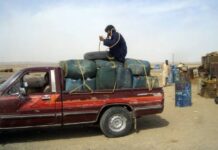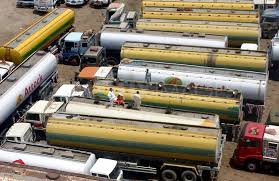Islamabad: Another oil-tanker strike is in the offing, as an association of oil tankers threatened to go on strike from October 23rd.
According to a report in Express Tribune, Oil and Gas Regulatory Authority (OGRA) had been sent a letter by All Pakistan (Itefaq) Oil Tankers Association demanding an immediate increase of 70pc in freight rates, which will get passed onto consumers.
They have also sought that tankers of all oil marketing companies (OMCs) to be permitted to be allowed transportation of 32,000 liters of oil. The association reminded of the strike called off on July 24th when the petroleum secretary assured them of addressing all outstanding grievances.
Various meetings were held in this regard, but to no avail as talks failed. Various divisions of the oil tanker association have gone on strike recently to pressurize Ogra for giving them enough time to meet safety standards.
The safety standards enforcement by Ogra gathered steam after the Ahmedpur East tragedy, where an oil-tanker owned by Shell Pakistan overturned, causing a massive explosion which resulted in the death of over 200 people.
Mostly Pakistani oil tankers have 3 axles and according to revised safety standards formulated by Ogra, the directives now are to have 4 axles which would support the vehicle’s body weight and add stability, which would reduce probability of them overturning.
Because of these frequent threats, Petroleum Division has plans to build an oil pipeline from Machike (Sheikhpura) to Tarru Jaba (Peshawar) to be constructed by state-owned Inter-State Gas Systems (ISGS) to curb theft and ensure smooth running of fuel supplies.
ISGS is said to be in the process of inviting interested parties in investing money in this pipeline project. It has been responsible for dealing with gas pipeline projects of national significance like Iran-Pakistan (IP), Turkmenistan-Afghanistan-Pakistan-India (TAPI) and North-South projects.
Experts believe pipelines are a safer medium of transporting POL products, as around $200m worth of furnace oil is stolen annually via transportation through tankers.
To gather support for the oil pipeline project, Petroleum Division has moved a summary to relevant ministries in this regard and sought their comments before it is presented to Economic Coordination Committee for approval.
The project will be carried out in three phases following the build-operate-transfer model with a discounted period of 15 years. And tariff for the pipeline will be decided through competitive bidding.

























